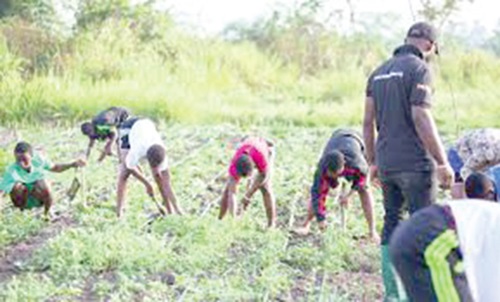
Optimising agricultural education for sustainable development
Food security and its relationship with sustainable agricultural and rural development have increasingly become matters of concern for developing countries and the international community.
Advertisement
While many complex factors influence sustainable development and food security, it is clear that education in agriculture plays an important role in preparing farmers, researchers, educators, extension staff and members of agri-businesses and others to make productive contributions.
A critical issue in the 21st century will be the changes and adaptations required in agricultural education for it to more effectively contribute to improved food security, sustainable agricultural production and rural development.
Challenges
Poor training of agriculture extension staff has been identified as part of the problem of the relative ineffectiveness of many extensions in the field. This applies not only to extension staff but to agricultural professionals in general. Unfortunately, the training of human resources in agriculture is often not a high priority in the development plans of countries.
As a result, curricula and teaching programmes are not particularly relevant to the production needs and employment demands of the agricultural sector. The situation has become more serious in recent years due to the economic crises in the public sector in many developing countries.
In the past, the public sector absorbed nearly all agriculture graduates. This is no longer the case, and agriculture graduates are finding it increasingly difficult to find employment.
Governments can no longer afford to hire every graduate. Over and above, education in agriculture has not kept up with the increasingly sophisticated labour demands of the private sector.
These and other factors, such as environmental degradation, rapid changes in technical knowledge and the increasing marginalisation of rural areas, all call for changes in the current systems of education in agriculture in many developing countries.
Employment opportunities
Recent changes in employment opportunities mean that the curricula and training programmes in agriculture need to be reoriented to meet the learning requirements of diverse groups such as unemployed and under-employed people, agricultural professionals seeking career changes and advancement and young graduates seeking employment for the first time.
Only by involving potential employers in the curriculum development process will it be possible to ensure that agricultural education will result in gainful employment for graduates.
Improving the employment opportunities for graduates requires that curricula focus less on specific technical knowledge that will quickly become obsolete and more on the processes and abilities of students to think and solve problems that are relevant to societal needs.
Students should learn skills and abilities that are transferable to a wide range of occupations. For example, excellent communication skills are as needed by agricultural graduates who plan to work in extension as business school graduates who hope for a career in the banking industry.
Likewise, teaching methods should be changed to reflect the needs of society, and thus better respond to demands for trained human resources. Teaching with practical, reality-based cases is a good example of how teachers can change methods to meet student needs and those of the larger society.
Inter-disciplinary systems
At a relatively early stage of their education, students need an overview of the agricultural and rural systems of their countries. Throughout their training, they need not only specialised courses which deal in-depth with specific technical subject-matter, but also courses that help them think holistically, or in terms of integrated agricultural systems so that they can understand the multi-dimensional nature of sustainable agricultural production.
This requires an interdisciplinary systems approach to agricultural education. Training in the systems approach is essential for agricultural education because of the increasing complexity of agriculture, food and rural systems, the problems of environmental protection and management, women farmers and household issues and the needs of small-scale farmers.
Even conventional subject-matter teaching should take place within an interdisciplinary framework of agricultural systems rather than as isolated subjects.
Recommendations
The curricula of agricultural colleges and universities in developing countries need to adjust to the current and future employment needs of graduates. The emphasis in curricular revisions should be on process skills of problem-solving and on skill sets that are transferable to a diverse employment sector.
New options for programmes of study should be based on enabling students to meet the expectations of agricultural employers, and, increasingly, the employment needs of the private sector.
Agricultural education institutions in developing countries will need to address not only immediate production needs but also long-term food security, sustainable agriculture and rural development needs.
This will require moving from a single-disciplinary approach to an interdisciplinary systems approach, which incorporates a wide range of new topics, including gender, environmental and population issues.
A major challenge will be the transformation of agricultural education institutions into dynamic promoters of change within their environments. This will require that they abandon long-established traditions of academic isolation and become active contributors to sustainable agricultural and rural development through innovative teaching, research and extension.
To sum up, agricultural universities, colleges and schools face major challenges in the 21st century. Meeting these challenges will require new educational strategies, innovative leadership and institutional reforms that take into account the current trends and factors that influence agricultural and rural development.
The Writer is the Registrar, Chartered Institute of Agriculture, Ghana
Email: [email protected]




